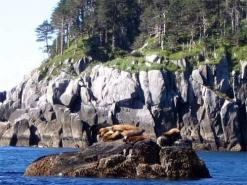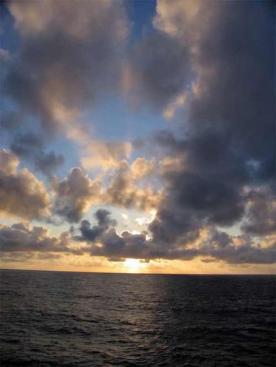Here it is the long awaited part two to my pre- trip knowledge quest. As you all know, the Bering Sea, one of the world's richest marine ecosystems, will be my laboratory for the next month. As an amazingly diverse unique ecosystem I thought it was time to get a little background information started.Knowledge Quest Two: The Bering Sea
Approximately _______________percent of the entire United States marine harvest comes from the Bering Sea.
Many species live in the Bering Sea, do you know approximately how many? Marine Mammals_________ Fish ___________ Sea Birds ____________
Aquatic mammals, do you know what species?
 Warming themselves, these aquatic mammals are enjoying some summer sunshine.
Warming themselves, these aquatic mammals are enjoying some summer sunshine.
Warming themselves, these aquatic mammals are enjoying some summer sunshine.
What reality TV show is based in the Bering Sea? It is quite exciting to watch!
The "Bering Land Bridge" used to theoretically cross between what two continents?
**Sunrise over the Bering Sea, a wonderful way to start the day! **
 Morning watch on the bridge of any vessel can be breathtaking in the Bering Sea!
Morning watch on the bridge of any vessel can be breathtaking in the Bering Sea!
Morning watch on the bridge of any vessel can be breathtaking in the Bering Sea!
One of the most endangered baleen whale species is found in the Bering Sea; do you know which whale I am talking about?
The Bering Sea is a rich marine ecosystem, and this summer some of the scientists on board the U.S. Coast guard Cutter Healy will be studying_____________ Which is a fundamental building block to the entire Bering Sea food web.
There you have it, an introductory crash course into the Bering Sea. Follow along with my journals as I learn more about this important marine ecosystem!
If you are interested in your own research here are a few links that I used to get my data:
http://www.nmfs.noaa.gov/pr/species/mammals/cetaceans/rightwhale_northpacific.htm http://www.nhptv.org/natureworks/nwep6d.htm
**FOR MY STUDENTS**: Can you identify the marine mammal picture?

